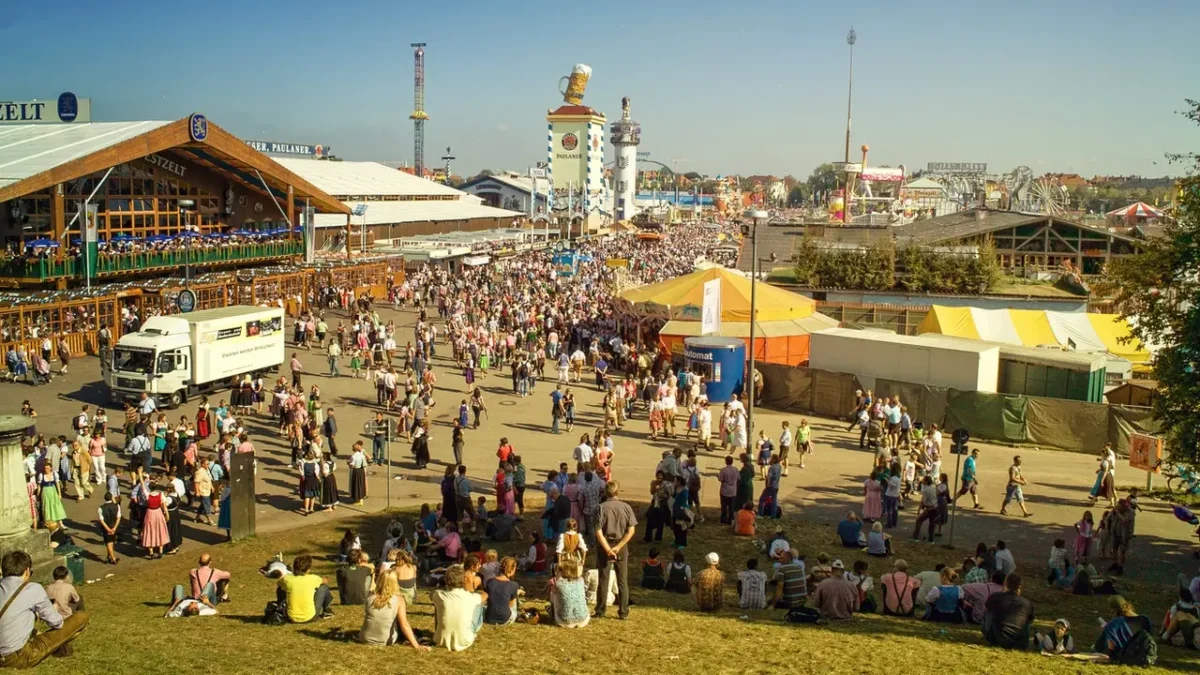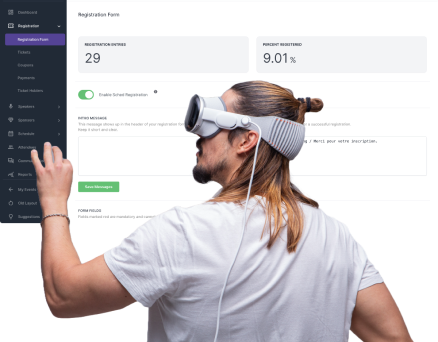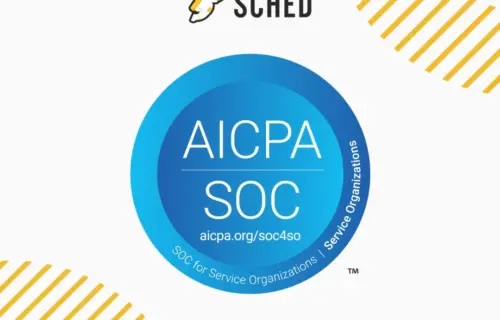When planning a K-12 event, one of the most important decisions you’ll make is where to host it. You’ll need to consider many factors when it comes to venue selection, from the size of the space to the event date, and the cost.
In this guide, we’ll go over the essential elements you need to consider when comparing places to hold events. Whether you are planning a teacher conference, education professional development event, alumni gathering, or anything in between, read on for helpful advice on finding the right venue for you.
TL;DR
Table of contents
- Venue selection is a critical consideration and no one factor is more important than any other. Location, capacity, accessibility, services and facility, configurability, and cost are all essential to consider.
- Start looking for a venue at least 8 months before the event so you have time to choose a second option if your first is unavailable.
- Don’t overlook the need for technical support – like having Wi-Fi available – with the event faclity you choose. If you’re unsure of the tech requirements of your event, assign someone with a good understanding of technology to define them before you choose a venue.
The Importance of Making the Right Choice of Venue for an Event
Unsure why the venue is important for an event? It is truly one of the most important factors and will affect just about everything. The venue you choose determines the following:
- Setting the Tone: The venue sets the event’s tone. It influences the attendee experience and affects their perception of the event itself. A well-chosen venue can enhance the theme and create the right ambiance.
- Attendee Comfort and Convenience: The right venue ensures the comfort and convenience of your attendees. It will be centrally located and easily accessible, while providing modern conveniences, like clean restrooms.
- Logistics and Branding: Event venues offer a controlled environment ideal for establishing and/or building your brand, but they also provide additional benefits, like event staff, security personnel, and more to help improve the attendee experience, ensure safety, and provide peace of mind.
As you can see, venue selection impacts almost everything about your event. Ready to learn how to find a venue for an event that fits your brand and supports positive outcomes for your attendees? We’ll discuss the most important factors to consider when selecting an event venue below.
8 Key Factors to Consider in Venue Selection
When you start comparing places to hold events, you’ll need to focus on a handful of key factors. The eight considerations listed below will help you make an informed decision when it comes to the event facility you choose.
1. Location
Location is a critical consideration when finding a venue for an event. You want something that’s centrally located and easy to access for the majority of your attendees. Note that “easy to access” will vary depending on the scale and scope of your event.
For instance, if you’re planning a professional development conference for local educators, you’ll want to consider access from highways and surface streets.
However, if your event will bring in attendees from across the state or nation, you’ll need to consider the proximity to a major airport and other travel hubs.
2. Size and Capacity
One of the biggest mistakes when choosing event planning venues is opting for a location that’s just the wrong fit (literally). You want an event facility that’s big enough to hold the number of attendees that you expect.
It’s also important that you consider the size of the facility beyond the number of people it can hold. For instance, are the hallways narrow? Are the conference rooms cramped?
In this instance, you may make your attendees feel claustrophobic even if the venue can technically accommodate the number of attendees you’ll have.
3. Services and Amenities
When it comes to venue requirements for an event, make sure you consider the services and amenities that you’ll want. Some venues offer plenty of optional services, while others are more barebones. So, it pays to know your needs.
Do you need event staff to help with attendee flow? What about technical staff to handle things like setting up presentation equipment or troubleshooting Wi-Fi?
Know your event’s needs in terms of additional services and amenities, and then match those to the venues you’re comparing.
4. Ambiance/Feel
Venues for event hosting come in all shapes and sizes. Each one also has its unique feel or ambiance. You’ll need to choose one that fits your event.
For instance, a convention center might feel very modern while hotel conference rooms/ballrooms could be more elegant.
Again, it comes back to knowing your needs and how you want the event to feel. You’ll also need to balance ambiance with capacity.
5. Accessibility
Accessibility has many different implications. How easy is it to reach the facility? Is parking available or will your attendees have to park elsewhere and then walk or take a shuttle to the facility? What about accessibility for attendees with different abilities?
In a perfect world, you’ll find places to hold events that are ADA-compliant, have plenty of on-site parking, and are located within easy reach of mass transit services, as well as your area’s interstate highways.
6. Technology Offered
All events require technology, even if it’s relatively simple. Just delivering a PowerPoint presentation to a handful of attendees will require the right tech. Those needs increase as the scope of your event grows.
If you’re not familiar with the tech requirements of your event, make sure you consult with someone from the IT department during your venue selection search. Some of the most important considerations here include available Wi-Fi, hardwired Internet, intranet connectivity, A/V technology, and projectors and screens.
7. Cost
Cost is a major factor in your venue selection. The right event facility will fit with your organization’s budget but provide some flexibility when it comes to the contract.
Check the agreement for things like additional service charges, deposits, taxes, and insurance.
Note that some venues allow you to negotiate prices, so don’t be afraid to haggle a little to get a better deal.
8. Configurability
Finally, consider the configurability of the space. This refers to the ease of sectioning off areas for different purposes.
Even if your event will only include a single audience area, you’ll still need separate spaces for guest speakers to wait before delivering their speeches, areas for refreshments, security stations, and more.
Choose a venue that offers flexible space so that you can customize it to fit your event’s needs.
By this point, you should have a better grasp of what to look for when finding a venue for an event. Now it’s time to discuss how to find the right option for you.
How to Find a Venue for an Event in 5 Steps
Comparing places to hold events? Venue selection can be tough. Use the tips below to help streamline the process and sort through optional venues for event hosting to land on the right one for you.
1. Define Requirements
The first step to choosing an event facility is to define your requirements. What do you need to ensure that your event goes off without a hitch? What type of education industry event is it? What’s your budget? What technology will you need? You get the idea. Flesh out your requirements and then you can begin the venue selection process.
2. Research Potential Venues
Once you have your list of requirements, you can start comparing venues for event hosting. Any venues that don’t align with your needs can be safely marked off the list.
Narrow your options down to just a handful so that the next step is easy. You might want to go ahead and contact those you’re considering checking for any fine details not available on their websites.
3. Pay a Visit
The third step in finding a venue for an event is to pay a physical visit to each one of your possible candidates. This will help you get a better feel for the location, accessibility, ambiance, and size, as well as discuss things with a rep in person.
4. Consider the Cost
With your site visits completed, you can start comparing costs. Remember, you need to do more than bump the venue cost against your budget.
Consider things like insurance and any extra fees for things like event staff or equipment. Check for hidden fees and surcharges, too.
5. Check the Contract
Finally, look over the contract. Double-check that all the terms you agreed on are included. You should also check the cancellation fee and whether any last-minute charges were added without your knowledge.
Once you’ve completed these steps, you can safely book the venue, secure in the knowledge that you’ve got the perfect location for your education industry event.
When Should You Start Looking for a Venue for Your Event?
Venue selection can be a time-consuming, challenging process. It’s one that’s best started as early as possible. When is the latest you should start? We’d recommend beginning no later than eight months before your event is planned.
However, it’s best to begin the process about a year out. This gives you ample time to define venue requirements for an event and then start the process of finding a venue for an event.
Remember that you’ll need to visit each location, and your first choice might be already taken, so the earlier you begin, the better.
Event Venue Selection: Key Takeaways
Venue selection can be time-consuming and challenging. Starting well ahead of time is critical. We recommend that you begin comparing venues for event hosting roughly 12 months before you plan to host the event.
You should also have a deep understanding of your event’s needs, like attendee capacity, technology, configurability, and location) so that you can choose venues that fit the bill and then compare them.
With ample time, a good understanding of what you need in an event facility, and some patience, venue selection becomes much easier.
The takeaways
The Global Improvisation Initiative (GII) is more than just comedy; it’s revolutionizing improvisation across various industries—from healthcare to business.
Using tools like Sched, GII has streamlined their comedy events, enhancing engagement and organization.
Whether you’re in the arts or any professional field, GII’s insights into flexibility and innovation offer invaluable lessons in creativity and effective communication.
FAQs
How to book a venue for an event?
Start by defining your needs, then make a list of places to hold events that meet those needs. Next, visit each venue in person, before considering the cost, learning more about the additional services available, and getting a quote.
How to inquire about an event space?
The best way to inquire about event space is to call the venue directly. You can also email the venue, but email response times are often slow. It’s always best to check the venue’s website for accurate contact information as well as information about inquiring about the event facility.
What is a Request for Proposal when searching for an event venue?
A request for proposal (RFP) is a document that you send to potential venues that outlines your requests, your specific needs, and expectations. The venue then responds with a proposal that highlights what they can do to meet your requirements.
Your RFP should include as much specific information about your requirements as possible, including the type of event, the date, the duration, your estimated number of attendees, your budget, services you might need from the venue, and your contact information. Don’t forget that last bit, or the venue won’t be able to respond.
What makes a good meeting place?
A good meeting place for an education industry event will be easily accessible for all attendees and centrally located in the area. It will be able to hold the expected number of meeting attendees and should provide seating, tables, and other equipment.









